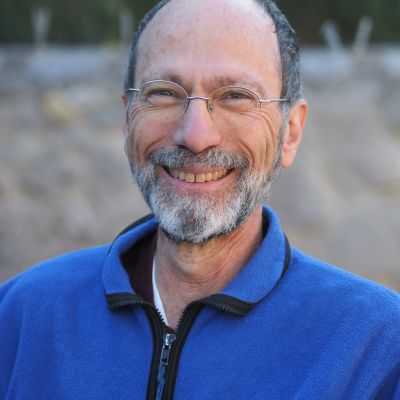Knowledge-seeker and psychologist Stuart Kelter shares his joy of learning and “delving in.” Ready? Let’s delve... Join Chris Churchill on the possible reasons why the search for intelligent life in the universe is coming up empty. Let’s hear from Israeli psychiatrist Pesach Lichtenberg about a promising approach to schizophrenia—going mainstream in Israel—that uses minimal drugs and maximal support through the crisis, rejecting the presumption of life-long disability. Find out what Pulitzer Prize winning historian, David Kertzer learned from recently opened Vatican records about Pius XII, the Pope During WWII. We explore the fascinating and intriguing... What did journalist Eve Fairbanks learn about race relations in post-Apartheid South Africa? Did you realize there were dozens and dozens of early women scientists? Let’s find out about them through a sampling of poems with poet Jessy Randall. How shall we grapple with the complexities of the placebo effect in drug development and medical practice? Harvard researcher Kathryn Hall confirms just how complicated it really is! But beware: increasing one’s knowledge leads to more and more questions...
https://delving-in.captivate.fm
Gesamtlänge aller Episoden: 3 days 21 hours 25 minutes
episode 89: #89. The History and Continued Threats of White Supremacist Terrorism
Bruce Hoffman and Jacob Ware are the coauthors of the recently published, God, Guns, and Sedition: Far-Right Terrorism in America. Dr. Hoffman is a professor at Georgetown University, professor emeritus of terrorism studies at the University of St Andrews, Fellow at the U.S. Military Academy’s Combating Terrorism Center, and a Fellow for Counterterrorism and Homeland Security at the Council on Foreign Relations.
Dr...
episode 88: #88. The End of Race Politics: Arguments for a Colorblind America
Coleman Hughes is a writer, podcaster, and musician, focusing on race, public policy, and applied ethics. At the age of 28, he is already becoming a well-known commentator and critic on issues related to race-based policies. He was a fellow at the Manhattan Institute for Policy Research and a fellow and contributing editor at their City Journal. He is also the host of the podcast, Conversations with Coleman. In 2019, he testified before a U.S...
episode 87: #87. Hard Choices that the Green Revolution Poses
Ernest Scheyder is a senior correspondent for Reuters covering the green energy transition and the mining of the minerals required for its implementation. He previously covered the U.S. shale oil revolution, politics, and the environment. He is the author of the recently published book, The War Below: Lithium, Copper, and the Global Battle to Power our Lives.
Recorded 3/6/24.
episode 86: 86. How Religious Practice Creates Faith, Rather than the Other Way Around
Tanya Marie Luhrmann is an anthropologist of religion at Stanford University, whose work focuses on the edge of human experience: hearing voices, having visions, the world of the supernatural, and the world of psychosis, whether on the streets of Chicago with homeless and psychotic women, with people who hear voices in India, Ghana, and southern California, with evangelical Christians who seek to hear God speak back, with Zoroastrians seeking mystical dimensions, and with people who practice...
episode 85: #85. The History of Myanmar (Burma)
Ken Hammond is a professor of East Asian and global history at NMSU since 1994, who lived in Beijing from 1982 to 1987 prior to completing his PhD at Harvard in 1994. He subsequently joined the history faculty of NMSU, specializing in East Asian history, particularly 16th century China. From 2007 to 2015 he was co-director of the Confucius Institute at NMSU...
episode 84: #84. Reflections of a Human Rights Leader
Richard ("Dick") Scobie was the Executive Director of the Unitarian Universalist Service Committee from 1972 to 1998. Under his direction, the UUSC defended human rights and promoted humane solutions to social problems worldwide, from war zones in Central America, Africa and Asia, to America’s broken systems of criminal justice and child welfare. His memoir, To Advance Justice, published in 2005, provides a detailed account of his 27 years of leadership of UUSC...
episode 83: #83. Unseen, Unheard, Yet a Clear Sense of Another’s Presence
Ben Alderson-Day is a professor of psychology at Durham University in the UK, researching the phenomena of voice-hearing and unusual sensory experiences. Specializing in atypical cognition and mental health, his work spans cognitive neuroscience, psychiatry, philosophy, and child development. He is the co-founder and co-chair of the Early Career Hallucinations Research group, a network comprising 24 countries...
episode 82: #82. Why Is It So Difficult to Promote Social Mobility and Equality of Opportunity?
Aveek Bhattacharya was the Chief Economist and is now the Interim Director of the Social Market Foundation (SMF), a non-partisan think tank based in the U.K., which aims to promote evidence-based policy and cross-party co-operation in politics. Prior positions include Senior Policy Analyst at the Institute of Alcohol Studies, researching and advocating for policies to reduce alcohol-related harm...
episode 81: #81. The Neurology of Memory in the Continuity of Experience and Personal Identity
Michael Yassa is a professor at the University of California at Irvine, where he is the director of the Center for the Neurobiology of Learning and Memory. His research focuses on how the brain learns and remembers information, and how learning and memory mechanisms are altered in aging and neuropsychiatric disease, especially dementia. Today's interview also explores the crucial role of memory in the construction of personal identity and lived experience.
Recorded 8/3/21.
episode 80: #80. Political Dynamics of the Drug Cartels of Mexico
Neil Harvey is a professor and academic department head in the Government Department at New Mexico State University. His main areas of interest encompass politics in Mexico and Latin America, especially social movements in the struggle for democracy and new forms of political representation. He has carried out field research in Chiapas, Mexico, into their independent peasant movements, land conflicts and agrarian reform...
